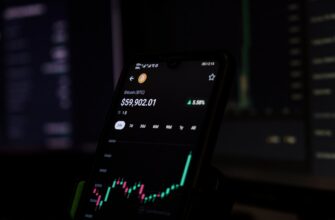# Cryptocurrency Explained: Your Complete Guide to Digital Money Revolution
Cryptocurrency has transformed from a niche technological experiment into a global financial phenomenon. As digital currencies like Bitcoin and Ethereum continue to make headlines, understanding this revolutionary technology is becoming essential. This comprehensive guide demystifies cryptocurrency, exploring how it works, its benefits and risks, and how you can safely participate in the digital economy reshaping our financial future.
## What is Cryptocurrency?
Cryptocurrency is a digital or virtual form of money secured by cryptography, making it nearly impossible to counterfeit. Unlike traditional currencies issued by governments (fiat money), cryptocurrencies operate on decentralized networks using blockchain technology. Key characteristics include:
– **Decentralization**: No central authority like banks or governments controls the network
– **Blockchain foundation**: Transactions recorded on an immutable public ledger
– **Digital scarcity**: Limited supply coded into most cryptocurrencies (e.g., only 21 million Bitcoin will ever exist)
– **Pseudonymity**: Users operate with digital addresses rather than personal information
The first cryptocurrency, Bitcoin, was created in 2009 by the pseudonymous Satoshi Nakamoto. Today, over 20,000 cryptocurrencies exist, including Ethereum, Litecoin, and stablecoins like USDT.
## How Cryptocurrency Actually Works
Cryptocurrencies function through a combination of cryptographic principles and distributed network consensus:
1. **Blockchain Technology**: Transactions are grouped into “blocks” and added to a chronological “chain” across thousands of computers worldwide.
2. **Cryptographic Security**: Advanced encryption (SHA-256 for Bitcoin) secures transactions and controls new unit creation.
3. **Consensus Mechanisms**:
– Proof-of-Work (Bitcoin): Miners solve complex puzzles to validate transactions
– Proof-of-Stake (Ethereum): Validators stake coins to verify transactions
– Other models: Proof-of-History, Delegated Proof-of-Stake
4. **Digital Wallets**: Software or hardware that stores your public and private keys to access cryptocurrencies on the blockchain.
## Major Benefits of Cryptocurrency
– **Financial Inclusion**: 1.7 billion unbanked adults can access financial services with just a smartphone
– **Reduced Fees**: Eliminates intermediaries, cutting international transfer fees by up to 80%
– **Transaction Speed**: Cross-border payments completed in minutes vs. days
– **Transparency**: All transactions permanently visible on public blockchains
– **Inflation Hedge**: Fixed-supply cryptocurrencies protect against currency devaluation
– **Ownership Control**: Users fully control assets without third-party custodians
## Understanding the Risks
Despite advantages, cryptocurrencies carry significant risks:
– **Extreme Volatility**: Bitcoin has experienced single-day drops exceeding 30%
– **Regulatory Uncertainty**: Evolving regulations vary significantly by country
– **Security Vulnerabilities**: Exchange hacks have resulted in billions in losses
– **Irreversible Transactions**: No chargebacks for mistaken or fraudulent transfers
– **Environmental Impact**: Bitcoin mining consumes more electricity than some countries
– **Market Manipulation**: Pump-and-dump schemes remain prevalent in smaller coins
## Getting Started with Cryptocurrency: Step-by-Step
1. **Education**: Study whitepapers, reputable crypto news sites (CoinDesk, Cointelegraph), and documentation
2. **Choose an Exchange**: Select regulated platforms like Coinbase, Kraken, or Binance
3. **Secure Storage**:
– Hot wallets (software) for small, frequent transactions
– Cold wallets (hardware devices like Ledger) for long-term savings
4. **Start Small**: Begin with modest investments you can afford to lose
5. **Diversify**: Spread investments across different cryptocurrencies
6. **Security Practices**:
– Enable two-factor authentication
– Never share private keys
– Use strong unique passwords
## The Future of Digital Currency
Cryptocurrency’s evolution points toward:
– **Central Bank Digital Currencies (CBDCs)**: Over 90% of central banks exploring digital versions of national currencies
– **DeFi Expansion**: Decentralized finance platforms challenging traditional banking services
– **Web3 Integration**: Cryptocurrency as the backbone of the decentralized internet
– **Enhanced Scalability**: Layer-2 solutions making transactions faster and cheaper
– **Green Mining**: Shift toward renewable energy and efficient consensus mechanisms
## Cryptocurrency FAQ
**Q: Is cryptocurrency legal?**
A: Legality varies by country. While permitted in most nations (US, EU, Japan), some ban crypto trading (China, Egypt). Always check local regulations.
**Q: How do taxes work for cryptocurrency?**
A: Most countries treat crypto as property. Transactions may trigger capital gains taxes. Record all trades and consult a tax professional.
**Q: What’s the difference between coins and tokens?**
A: Coins (Bitcoin, Litecoin) operate on their own blockchain. Tokens (UNI, LINK) are built on existing blockchains like Ethereum and represent assets or utilities.
**Q: Can cryptocurrency be hacked?**
A: While blockchain itself is extremely secure, exchanges and individual wallets can be compromised. Use hardware wallets and enable all security features.
**Q: How do I spot crypto scams?**
A: Red flags include guaranteed returns, unsolicited offers, fake celebrity endorsements, and pressure to act immediately. Verify through multiple sources.
**Q: What is cryptocurrency mining?**
A: The process where specialized computers validate transactions and secure the network in exchange for new coins. Requires significant computational power.
**Q: Will cryptocurrency replace traditional money?**
A: While unlikely to completely replace fiat soon, crypto is becoming integrated into payment systems. Major companies like PayPal and Visa now support crypto transactions.
Cryptocurrency represents a fundamental shift in how we conceptualize money and value exchange. As the technology matures and regulatory frameworks develop, digital currencies continue moving toward mainstream adoption. By understanding both the transformative potential and inherent risks, you can make informed decisions about participating in this financial revolution. Always prioritize security, continuous learning, and responsible investment practices as you explore the dynamic world of digital assets.








